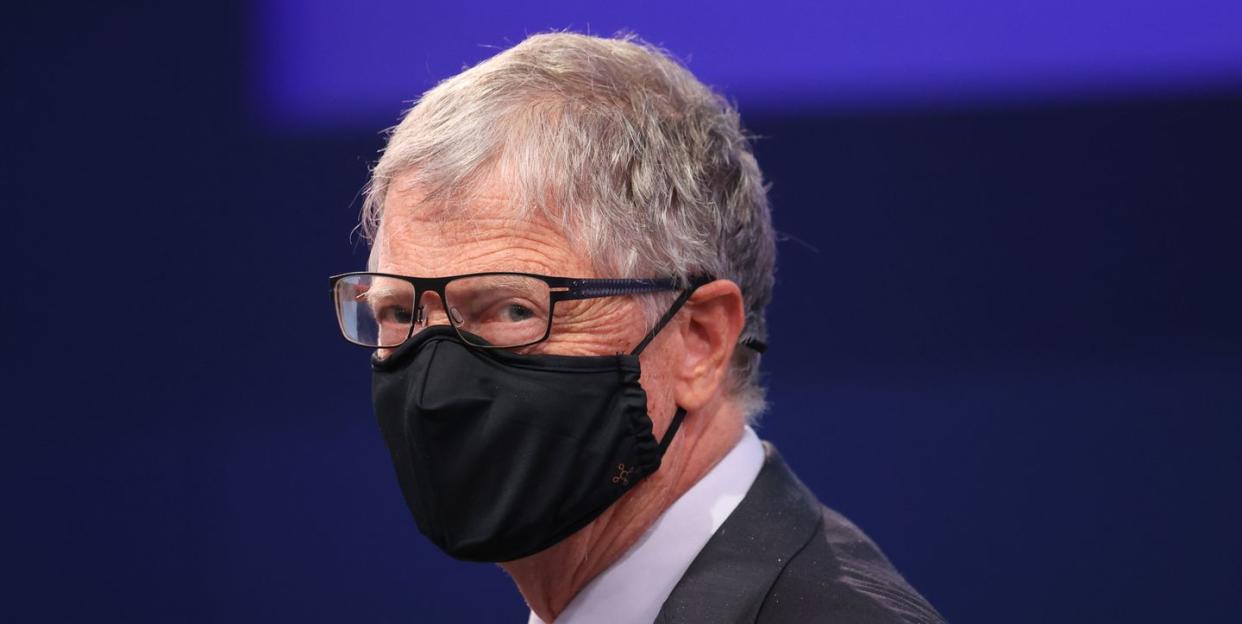Bill Gates Is Trying to Get Cows to Stop Farting

Bill Gates’ Breakthrough Energy Ventures is investing in an Australian climate tech company focused on livestock methane emissions.
By decreasing livestock methane emissions, the U.N. believes it can reduce greenhouse gas.
Bill Gates has invested in over 100 climate tech startups.
If only we could get cows to burp and fart less, we may be able to clean up some air pollution. That’s the theory behind an Australian climate tech company, Rumin8, now backed by Bill Gates’ Breakthrough Energy Ventures.
Rumin8 says it makes “affordable feed supplements that reduce methane emissions from livestock.” And that’s a hot topic in climate conversations.
The United Nations Environment Program says methane is the “primary contributor to the formation of ground-level ozone, a hazardous air pollutant and greenhouse gas.” They also say that 32 percent of human-caused agriculture emissions comes from the methane release from livestock manure, farts, and burps, about 3.7 percent of all human-led greenhouse gas emissions.
That leaves folks worried about cows and their bodily functions. Gates included.
Breakthrough Energy Ventures is no stranger to climate tech companies, having invested in over 100 startups. The stated goal of the effort is clear: “We invest in visionary entrepreneurs, building companies that can have a significant impact on climate change at scale.” We’ve seen Gates back everything from additional nuclear power to toilets that turn poop to ash. He’s also buying up American farmland at a record clip, but that isn’t about his desire for climate change, more about his desire for money.
The latest fight against livestock methane pushes Rumin8’s goal of finding compounds with anti-methanogenic properties that can feed livestock while reducing emissions. Simply put, the company wants livestock feed that doesn’t make cows so methane filled. By synthetically replicating an active ingredient found in seaweed, the company says it can reduce livestock methane emissions by 95 percent and is “on a mission to decarbonize 100 million cattle by 2030.”
The new funding, according to Quartz, will further commercial trials across the world, allow the company to test the feed to make sure they get the right mix so cows eat it, and then pilot manufacturing plant development. The money equates to quicker commercialization.
Tweaking a cow’s diet to reduce methane isn’t a new concept. In one of the more recent high-profile attempts, Burger King announced plans in 2020 to cut digestive methane by adding lemongrass to its cattle feed. But now that Gates is on board, let’s see how the cows like the effort.
You Might Also Like
